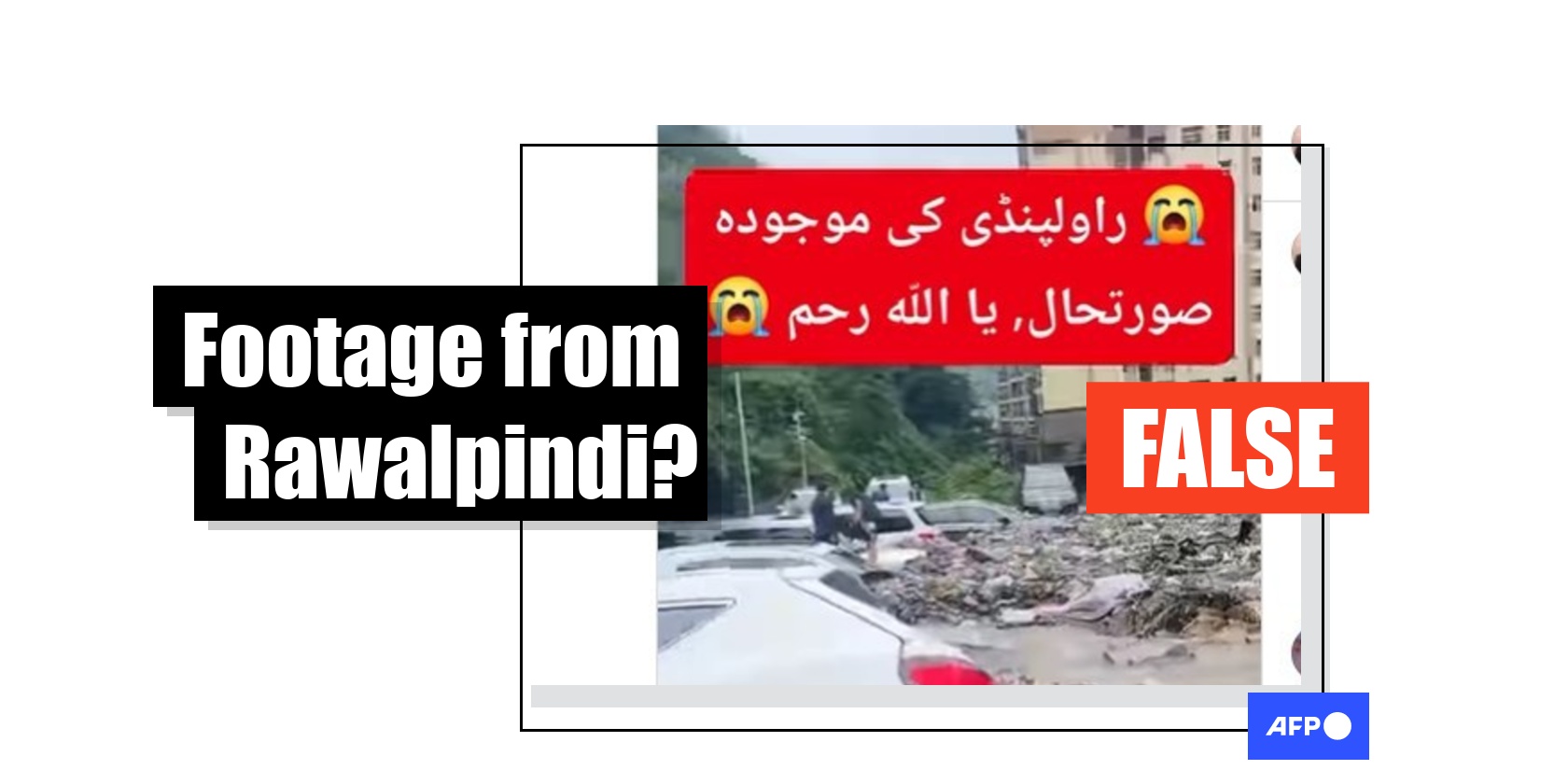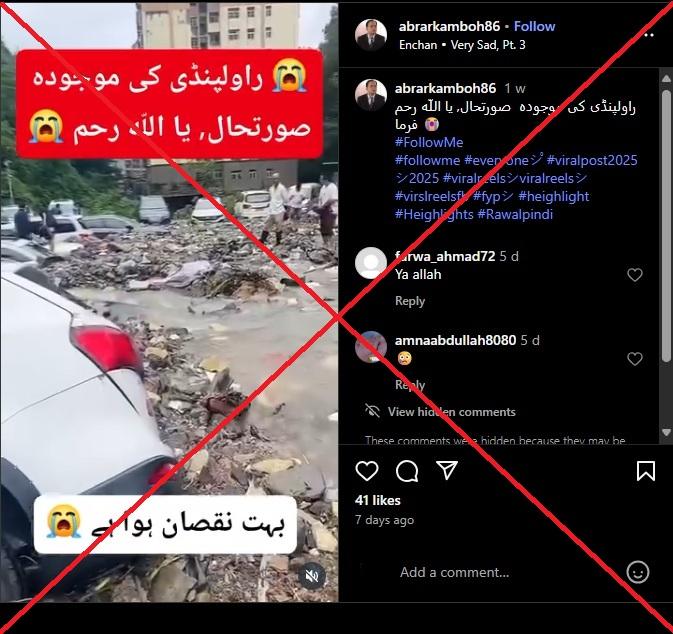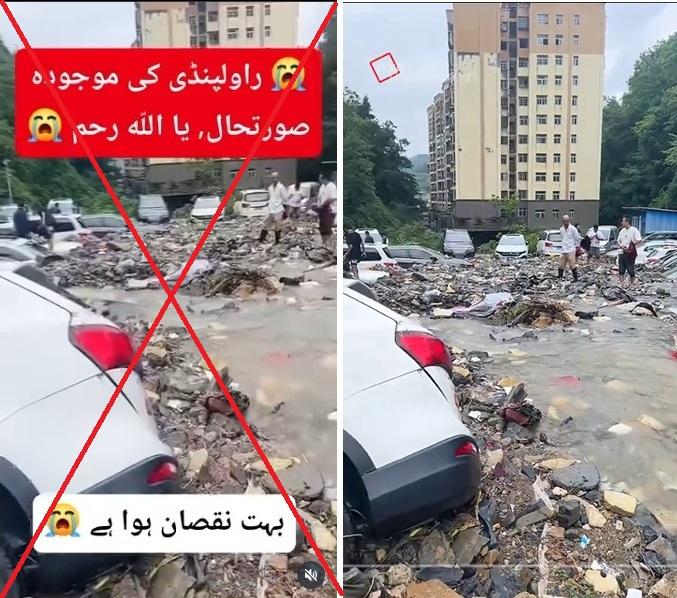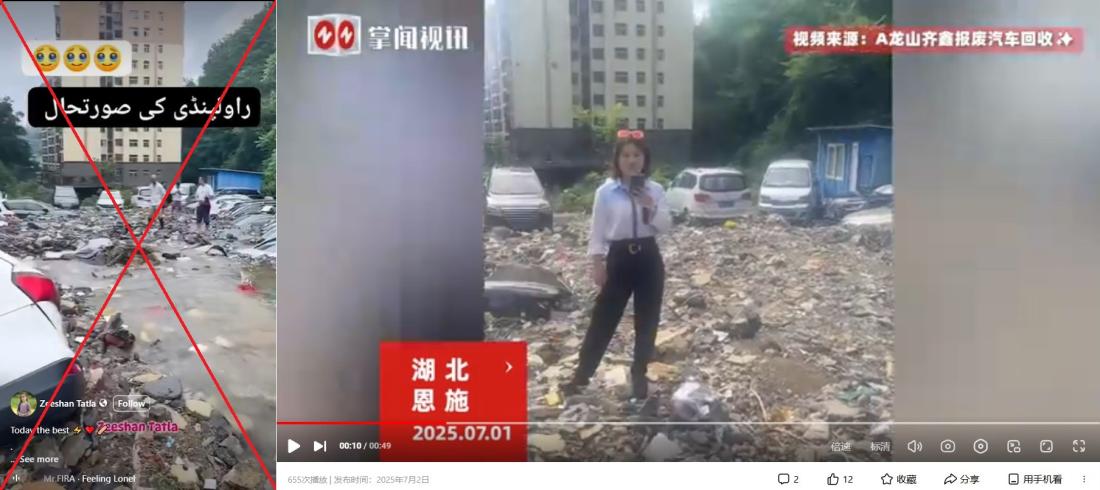
Clip shows buried cars after flooding in China, not Pakistan
- Published on August 8, 2025 at 08:59
- 2 min read
- By Masroor GILANI, AFP Pakistan
"The current situation in Rawalpindi, Allah have mercy," reads the caption of an Instagram reel on July 28, 2025.
The clip, viewed more than 7,000 times, shows several cars in front of an apartment building buried under debris left behind by a flood.
The post surfaced after flash floods, collapsed buildings and electrocutions killed 221 people in Pakistan as the monsoon season arrived in late-June with heavier rains than usual (archived link).

The same clip was also shared with similar claims elsewhere on Instagram .
However, it does not show the impact of floods in Pakistan.
A reverse image search found the clip shared on TikTok on July 4, 2025 in a post about flooding in Xianfeng county, located in central China's Hubei province (archived link).

A further reverse image search on Baidu led to a similar video published by the state-run Chongqing Fazhi Newspaper's social media channel on July 2 (archived link).
A woman can be heard saying, "Everything from up there collapsed, this was a parking lot, and now all the cars are covered".
The news report's narration states that heavy rains struck Xianfeng county from June 30 to July 1 and caused widespread flooding, with some areas seeing flood waters reach over 2.5 metres (8 feet).

A similar clip of the buried cars can also be seen in report by state broadcaster China National Radio on July 1, which said many cars and shops were completely flooded over as Xianfeng county saw over 350 mm of accumulated rainfall within 12 hours (archived link).
Chinese state news agency Xinhua reported more than 180,000 people were evacuated in the county during the record breaking downpour (archived link).
AFP has debunked more false posts misrepresenting visuals of floods here, here and here.
Copyright © AFP 2017-2026. Any commercial use of this content requires a subscription. Click here to find out more.
Is there content that you would like AFP to fact-check? Get in touch.
Contact us
